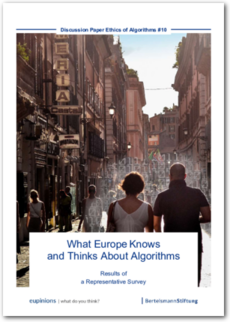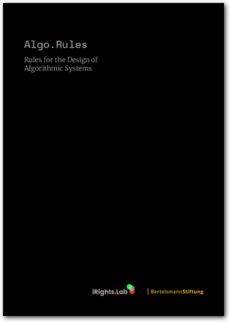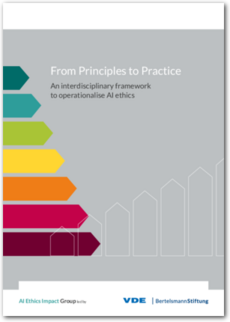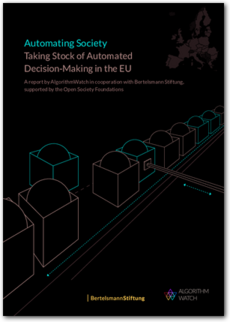Algorithmic systems decide on people’s participation in society. Who is approved for a loan? Whose job applications are filtered out? How are limited university admissions allocated? Whether such automated decisions lead to more equal opportunities or increase social inequality is up to us humans.
Throughout the duration of the Ethics of Algorithms project, we sought to raise society’s awareness to this issue, structure the discourse and develop practical solutions to address specific challenges. In addition to focusing on effective approaches to minimize the risks posed by algorithmic systems, we also sought to promote diversity in the digital space and encourage applications for the common good.
During the project’s five years, we published 56 papers and, in the context of our Ethics of Algorithms blog, produced 224 posts informing more than 160,000 visitors. Some publication were of particular significance: One was the book “We Humans and the Intelligent Machines” by Jörg Dräger and Ralph Müller-Eiselt, which draws on 40 case studies illustrating the reach and scope of algorithms and demonstrates their social relevance.
In 2018, we conducted a survey of what the German public knows and thinks about algorithms for the first time, showing that even though algorithms are a part of our everyday lives, most people in Germany do not perceive it to be that way. We have also delivered further evidence of the gap between reality and the horizon of our own experience with our European survey conducted in 2019 and an update on Germany conducted in 2022. In addition, in 2021 we published an analysis that looked at the media discourse on algorithms and artificial intelligence over the past 15 years and showed that there are blind spots with regard to the common good.
During the early stages of the project, it became clear that the design and use of algorithmic systems raised several ethical questions. Which is why we – together with irights.lab and nearly 500 other stakeholders – developed the Algo.Rules – 9 Rules for the Design of Algorithmic Systems criteria. In response to the strong interest shown in this set of criteria, we developed a practical guide for programmers and decision-makers as well as a brochure for the digital administration. In addition, we participated in the AI Ethics Impact Group that created a framework for an AI ethics label. We also helped to build up the not–for-profit organization AlgorithmWatch, working with it to identify hundreds of algorithm deployments in Europe in the Automating Society Report.
As part of our efforts to bring more diverse perspectives to the debate about our digital future, we launched together with Superrr Lab the NewNew Fellowship. This six-month fellowship program provided twelve individuals or groups from across Europe the opportunity to develop their inclusive visions of our digital future.
Even though the Ethics of Algorithms project has come to its end, the work to be done by its significantly expanded team is ongoing. Its successor project, reframe[Tech], aims to align the development of technology more closely with the common good and remains committed to minimizing algorithmic risks and leveraging opportunities for the common good.









